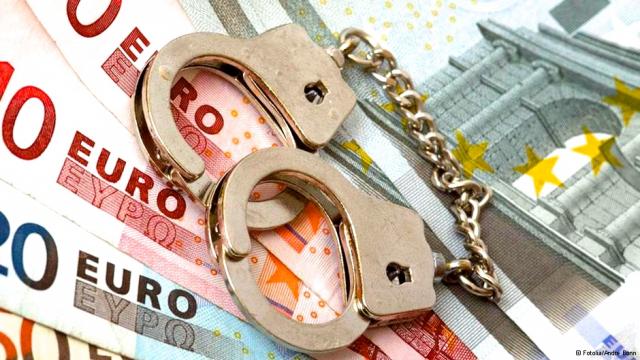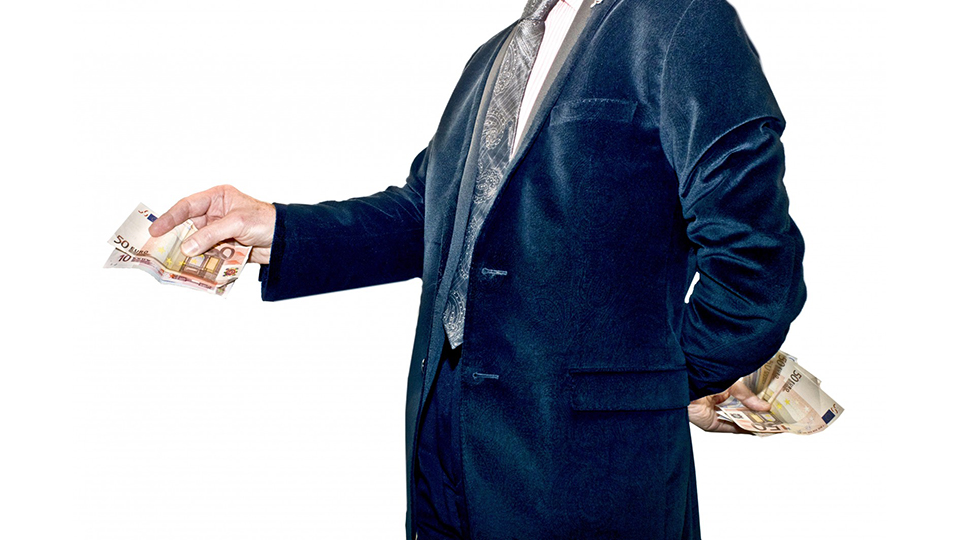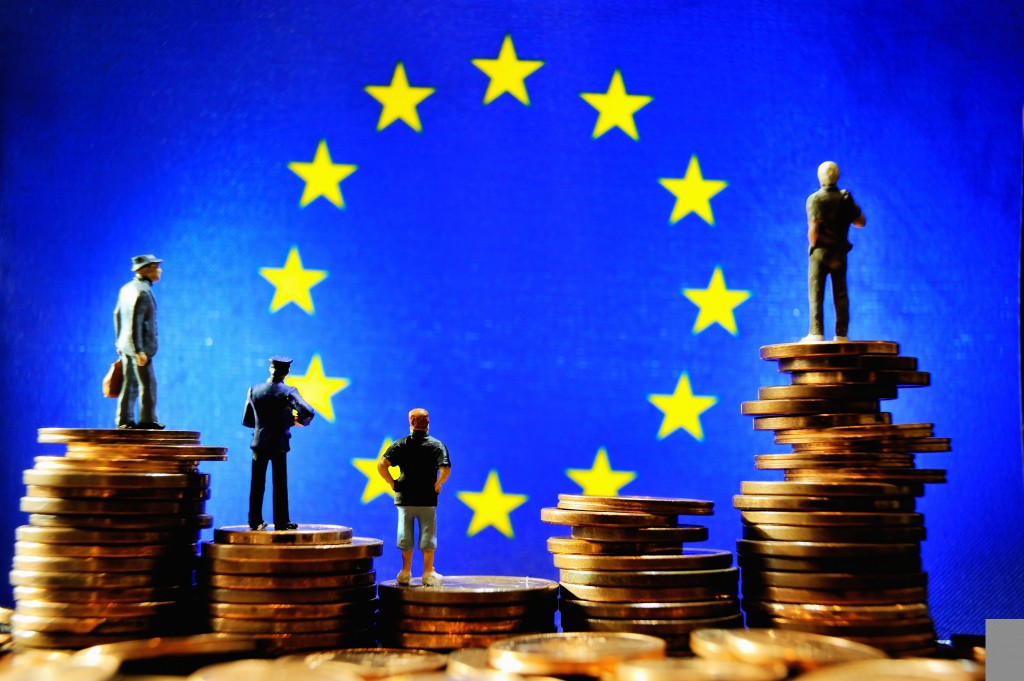
A few weeks ago, Uli Hoeness, legendary German footballer and former manager of the country's top club, Bayern Munich, was sentenced to three and a half years in prison for evading taxes to the tune of €28.5 million euros ($39 million), which he hid in a Swiss bank account over 10 years.
The news rocked German society and has prompted other prominent figures like feminist Alice Schwarzer and André Schmitz, an aide to Berlin Mayor Klaus Wowereit, to come forward and face lesser penalties if they admit to holding secret offshore accounts before the authorities discover them.
But it is not only in Germany where tax evasion and avoidance have become a major issue. All across Europe, member states have been battling to deal with the dual fiscal and criminal crises.
France
In a bid to decrease the €60 to €80 billion euro ($83 to $110 billion) annual loss due to tax fraud, the French parliament voted in November to increase the conviction for tax evasion to seven years – and levy an additional €2 million euro ($2.75 million) fine if an account was opened as a haven outside France.
In January, more than 11,000 people in France confessed to having secret funds hidden abroad, according to Budget Minister Bernard Cazeneuve. The country's decision to tackle offshore tax evasion followed former Budget Minister Jerome Cahuzac's resignation last year after he admitted in a blog that he had held a foreign bank account for 20 years.
Britain
Meanwhile, in 2010, the UK government allocated £917 million ($1.5 billion) to the national tax authority, known as Her Majesty’s Revenue and Customs (HMRC), with the goal of generating £7 billion ($11.6 billion) in additional annual compliance revenues by 2015.
According to the HMRC, the tax gap in fiscal year 2010-11 between the revenues that should have been received, and those the government actually got, was £32 billion ($53 billion). Tax evasion and avoidance accounted for £9 billion of that total.
Big Havens: Switzerland and Jersey
Still, one of the biggest problems for European authorities is discovering tax dodgers when their money is hidden in tax havens – something Germany has tried to do through the purchase of illegal CDs containing the details of German clients with Swiss bank accounts.
Switzerland is known, of course, for its powerful banks – but until recently, not so much attention has focused on precisely how, or why, they have remained so powerful. The country, which remains outside the European Union, ranks first in terms of bank secrecy while accounting for just under 5% of the global market in offshore financial services.
"The banking model [in Switzerland] is very much designed around attracting dirty money," said John Christensen, director of the independent Tax Justice Network, based in London. "Swiss banks are not particularly adapted to other banking activity, they are not particularly good at investment banking – [so] they rely very heavily upon this selling point, of selling secrecy to their clients.”
Another haven for banking secrecy is the British Channel Island of Jersey, where Christensen himself grew up. "Wealthy people can use places like Jersey for tax evasion and tax avoidance with a high degree of security from investigation by their own tax authorities,” he said
“Jersey is used as a booking center for transactions which largely involve the city of London, so it is a satellite of the city of London. In terms of pure investments in productive capacities, nothing stays in Jersey.”
Christensen, who worked nearly a decade as an economic adviser for Jersey in the 1990s, focused on a range of government statistics and activities – from health services education to financial services development. It's safe to say he knows his field.
“I worked within the offshore finance industry and I would say that almost all of my clients were engaged in some kind of illegal activity," he said. "Either tax evasion or paying bribes or in some case arms trading. There is a very high proportion of the capital held offshore which is in one way or the other engaged in illicit activity."
Tax Evasion vs. Tax Avoidance
But while tax evasion and the rampant use of tax havens is openly recognized as a problem, many say that very little is actually being done about it within the legal jurisdiction of the European Union. Instead of providing a clear framework for dealing with tax havens, for example, the European Commission has merely outlined criteria to identify third countries that "do not meet minimum standards of good governance in tax matters" – essentially calling on individual member state to make their own "blacklists."
Richard Murphy, a tax expert and manager of the blog Tax Research UK, estimated in a report for the Progressive Alliance of Socialists and Democrats, in the EU Parliament, that national authorities in the EU lose €860 billion euros ($1.2 trillion) per year to tax avoidance – while the total in unpaid taxes tops 1 trillion euros annually.
“Tax evasion is blatantly illegal whereas tax avoidance is exploiting the loopholes within tax law, for example obtaining tax releases that are not intended, creating allowances which the law never intended some people should get," said Murphy. "Shifting money to tax havens is tax avoidance, not tax evasion, when done by large corporations."
Biggest Evaders
According to Murphy's report, Estonia loses a whopping one-third of its government spending due to tax evasion. But it is Italy that loses the most in Europe: around €180 billion euros, or nearly a quarter of a trillion dollars, per year.
Internal investigations by the Italian Senate into the relation between tax payers and revenues show that rampant tax evasion, apart from affecting the overall contribution of taxpayers, provokes a clear distortion in economic competition.
Tax burdens among EU members vary from state to state, from a minimum of 26% in Lithuania to a maximum of 47.7% in Denmark, according to 2013 figures from the statistical office of the European Union, Eurostat. Companies and individuals have learned to take advantage of the profits to be gleaned under different tax regimes – much the way criminal organizations find their bottom margin.
And it's not just tax dodgers in Europe proper who have succeeded in gaming the system. Since the end of the Cold War, Russian organized crime syndicates have spread their investments across Europe, laundering money earned from illicit activities.
"They know that in Europe there are 28 different systems, and they use that," said Walter Kegö, senior fellow at the Institute of Security and Development Policy in Stockholm, an independent and non-profit research institute.
"A lot of stolen money from the Russian people goes to City of London, Cyprus and some other havens. They do a lot of things, they buy properties, they buy restaurants and so on," he said.
Efforts at Reform
Still, legislators in Europe are threatening to make evasion more difficult across the continent.
On March 24, member states adopted the Saving Tax Directive, which will make it easier for tax authorities to exchange information on savings accounts starting in 2017. Austria and Luxemburg opposed the directive.
“In times of budgetary constraints, member states have looked at how to better collect taxes,” said Franck Arrii, spokesperson for the Taxation and Custom Union unit of the European Commission.
Until today, EU member states continue to rely on income tax as the largest source of taxes – they total almost half of total receipts – followed by the VAT (value added tax) at roughly one-third, and taxes on capital and real estate at around one-fifth, according to Eurostat.
“Governments across the world, and Europe is no exception, have been switching the tax charge away from wealthy people, and away from companies," said Christensen of the Tax Justice Network, "and increasing VAT taxes, which impact upon poor households.”
3 WAYS TO SHOW YOUR SUPPORT
- Log in to post comments













